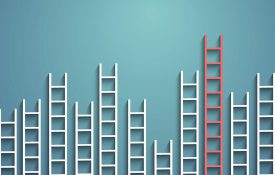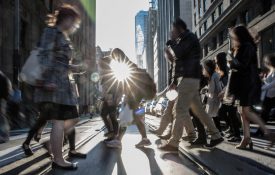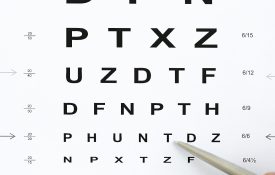-

Genetic Differences Linked With Social Mobility
Data from over 6,000 twin pairs indicate that genetic differences account for nearly 50 percent of the variation in social mobility in families. Visit Page
-

Individualistic Practices and Values Increasing Around the World
Individualism is thought to be on the rise in Western countries, but new research suggests that increasing individualism may actually be a global phenomenon. Visit Page
-

Asking Questions Increases Likability
New research suggests that asking more questions—and in particular, asking more follow-up questions—increases people’s positive impressions.
Visit Page -
New Research From Psychological Science
Read about the latest research published in Psychological Science: Alpha-Band Oscillations Enable Spatially and Temporally Resolved Tracking of Covert Spatial Attention Joshua J. Foster, David W. Sutterer, John T. Serences, Edward K. Vogel, and Edward Awh It has been suggested that oscillatory activity in the alpha-frequency band is integral to spatial attention; research shows that alpha-band activity tracks the specific location a person is attending to. However, a key untested prediction of the relationship between alpha-band oscillation and spatial attention is that the topography of alpha-band activity also tracks the time course of covert orienting.
-
New Research Finds Lonely People Have Superior Social Skills
NPR: Intuitively, many of us might think lonely people are lonely because they have poor social skills. New research turns this thinking on its head and offers a potential cure for loneliness. A number of experiments find, Audie, that when you bring people into a laboratory, people who are lonely are actually better at detecting social cues, reading expressions and being generally plugged into the social world than people who aren't lonely. I was speaking with Megan Knowles. She's a psychologist at Franklin & Marshall College. And she told me that she and her colleagues, Gale Lucas, Roy Baumeister and Wendi Gardner, were drawn to a paradox here. Read the whole story: NPR
-

Visual Illusion Could Help You Read Smaller Font
Visual acuity is thought to be dictated by the shape and condition of the eye but new findings suggest it may also be influenced by perceptual processes in the brain. Visit Page

